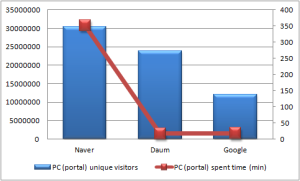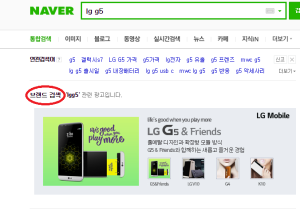What is the most influential scientific research about Korean consumer behavior? How do Koreans differ from American or Chinese consumers? What are the latest trends? We read the most cited and recent papers about these subjects and rephrased all of the scientific jargon to make it easy to understand.
Below are the studies summarized to one sentence:
- Korean people might care more about how cool a product is looking than people in the U.S.A.
- Confucianism still plays a significant role in Korea:
- Show commercials with many people of the target group together.
- The packaging of a gift should match the price level of the product.
- Loungewear:
- Korean loungewear consumers’ lifestyles can be described as “Well-being” and “Conservative”.
- Korean loungewear consumers greatly value both “product quality” and “retail service quality”.
- To sell loungewear in Korea, it is beneficial to target women.
- Korean ethical fashion consumers have higher scores in: 1) perceived consumer effectiveness (PCE), 2) benevolence and 3) social responsibility. They have lower scores on “group conformity”.
- Koreans who are religious are much more likely to be brand loyal.
- If Korean people think a coffee shop has good quality, has a long history, and is sincere, they are more likely to trust and be loyal to it.
- Korean tourists prioritize food tourism significantly, impacting their travel decisions and activities, with their length of stay influencing the variety of foods they explore and restaurants needing to adapt offerings to meet these preferences.
- Despite Korean youths actively discussing fashion online and being influenced by celebrities and influencers, many feel they are following rather than shaping trends, with the industry still playing a significant role in dictating what’s considered fashionable.
- The study reveals that in Korea, the likelihood of consuming Yak-sun (oriental medicinal cuisine) increases when individuals believe it’s beneficial for health and are influenced by friends and family, further supported by their perceived control over food choices.
The format of our research findings is as follows:
— — —
Cheeky headline
Easy to understand advice / observation about Korean consumer behavior.
Original scientific lingo which is hard to understand.
Source: link to paper
— — —
This blog post contents are:
- Korean consumer behavior
- When Koreans shop, it’s personal
- Ancient wisdom, modern sales
- Loungewear lifestyle
- Ethical rebels
- Holy loyalty
- Brewed with trust
- Trends
- Sightseeing inside restaurants
- Starstruck styles
- Seoul food
Korean consumer behavior
When Koreans shop, it’s personal
Imagine you and your friends are talking about your favorite snacks. Some of you like sharing fun stories about your snacks, like the cool games you can play with them or the neat prizes you find inside. This is called “brand experience information sharing”. Others might like it when their snacks look just as cool as they thought they would, which is called “brand image congruence”.
This study found that when people share stories and find that things are just as cool as expected, they talk even more about them, especially on places like Instagram or Facebook, which is called “brand SNS intensity.” And when they talk more on SNS, they also tend to tell even more friends about it, spreading the word.
But, depending on where the people are from, like the U.S. or Korea, they might share and talk differently. For example, people in the U.S. might share more about their snack stories than people in Korea. In contrast, Korean people might care more about how cool their snacks are looking just right than people in the U.S.
In the study, the effects of brand experience information sharing and brand image congruence on brand SNS intensity and brand WOM was investigated on the cross-cultural basis. According to empirical results, brand experience information sharing and brand image congruence have a significant effect on brand SNS intensity. The effect of brand SNS intensity on brand WOM was also validated. There are cultural effects in the empirical relationship between brand SNS characteristics and brand SNS intensity. The effect of brand experience information sharing on brand SNS intensity was greater for U.S. consumers than for Korean consumers. On the contrary, the effect of brand image congruence on brand SNS intensity was greater for Korean than for Americans. the effect of brand image congruence on brand SNS intensity was greater for Korean than for Americans. The effect of brand SNS intensity on brand WOM was greater for U.S. consumers than for Korean consumers. Based on empirical results, managerial implications for effective global brand communication strategy in smartphone-based mobile SNS environments.
Source: https://www.dbpia.co.kr/journal/articleDetail?nodeId=NODE07403133&language=ko_KR&hasTopBanner=true

Ancient wisdom, modern sales
Confucianism still plays a significant role in Korea: show commercials with many people of the target group together.
Considering a greater role of social influences in determining Confucian culture consumers’ behavioral intentions, international marketers should pay more attention to social factors in displaying marketing activities in this area. They should take into account face-saving pressure and/or group-conformity pressure when they develop a marketing mix program, for example, promotion or advertising program, targeted to Confucian culture consumers. For example, advertising might be more effective if it is shown in commercials how many of the similar target group purchased a product.
The packaging of a gift should match the price level of the product.
In marketing products which can be regarded as gifts, packaging of these products is important. The product should be packaged prestigiously and priced at a level to match the package.
Source: https://www.tandfonline.com/doi/abs/10.1300/J046v03n01_03

Loungewear lifestyle
Korean loungewear consumers’ lifestyles can be described as “Well-being” and “Conservative”.
[…] lifestyle of loungewear consumers was examined. A total of 12 items and four factors of loungewear consumer lifestyle were found: Traditional value oriented lifestyle (3 items), brand-affected lifestyle (3 items), pursuit of leisure lifestyle (3 items), and health oriented lifestyle (3 items). It could be noticed that lifestyle constructs related to loungewear included leisure, health and traditional value aspects of lifestyle in addition to other lifestyle aspects that usually effect clothing related behavior. Lifestyle cluster of loungewear consumers were classified as Well-being and Conservative.
Korean loungewear consumers greatly value both “product quality” and “retail service quality”.
Influence on Purchase Intentions: The study confirms that both product and retail service quality significantly affect consumer preference and perceived value, which in turn strongly influence purchase intentions.
The “Well-being” people value both product and retail service quality, whereas the “Conservative” people only value service.
In a comparison between two lifestyle groups; Well-being and Conservative lifestyle groups, results showed that for WelI-being consumers, product quality and retail service quality had positive influences on both preference and perceived value which had positive effect on purchase intention. However, for Conservative group, only retail service quality had a positive effect on preference and its influence to purchase intention.
To sell loungewear in Korea, it is beneficial to target women.
The results offered information on Korean loungewear consumers’ lifestyle and provide useful information for fashion brands that are planning to enter Korean loungewear market, particularly targeting female consumers similar to the sample of the present study.
Source: https://www.tandfonline.com/doi/abs/10.1080/12297119.2010.9707340

Ethical rebels
Korean ethical fashion consumers have higher scores in: 1) perceived consumer effectiveness (PCE), 2) benevolence and 3) social responsibility. They have lower scores on “group conformity”.
For ethical fashion consumers, the attitudes to ethical consumption behavior were largely influenced by PCE and benevolence. Social responsibility was the most predictable variable in guiding behavioral intention. Behavioral intention was also influenced by benevolence and attitude. Group conformity was found to be negatively correlated with behavioral intention.
Source: https://koreascience.kr/article/JAKO200912368303082.page

Holy loyalty
Koreans who are religious are much more likely to be brand loyal.
However, consumers reporting high levels of religiosity were found to be significantly less likely to engage in product purchase- and store-switching behaviors than those reporting lower levels of religiosity.
Source: https://onlinelibrary.wiley.com/doi/abs/10.1002/cb.292

Brewed with trust
If Korean people think a coffee shop has good quality, has a long history, and is sincere, they are more likely to trust and be loyal to it.
This study began as an attempt to better understand the effects of diverse dimensions of brand authenticity and brand trust with an emphasis on the coffee shop business in Korea. Eggers et al. (2013) and Napoli et al. (2014) suggest that understanding perceptions of brand authenticity and brand trust may not only better explain consumers’ brand attitudes or loyalty, but also help to develop a better method of segmenting their markets. To do so, this study integrated various dimensions of brand authenticity and brand trust from previously published works in an attempt to hypothesize that brand authenticity satisfies brand trust and that brand trust significantly relates to brand affect, and brand loyalty. Results similar to these have been shown in previous research of different contexts and the results of this study suggest that customers trust a coffee shop brand when they perceive the coffee shop brand is authentic regarding quality, heritage, and sincerity. This research also implies that the diverse dimensions of brand trust play a vital role in how we understand coffee shop customers’ perception of brand affect, and brand loyalty. In accordance with trends since the early 1990s, coffee shops have figured out discriminative strategies for brand development and established a high level of consumers’ brand loyalty in the competitive Korean coffee shop market. This development started from necessity as these coffee shops had to compete with traditional Korean tea stores that had long histories and cultural significance. Therefore, this research made several contributions to the extant brand literature and suggested managerial implications for coffee shop brand management in a Korean context.
Source: https://journals.sagepub.com/doi/abs/10.1177/1096348020980058

Trends
Sightseeing inside restaurants
Food tourism is really important when Korean people decide where to travel because they love trying different kinds of food when they visit new places. This study shows that what Korean tourists eat can really impact their travel plans and what they do during their trip. For example, some travelers like to eat fast food because it saves time and they can have fun experiences while moving around.
Food isn’t just something tourists eat to fill up; it’s a big part of their travel adventure. Depending on how long tourists stay in a place, they might visit different spots. Those who are just passing through usually stick to the main attractions, but those who stay longer explore more and try a wider variety of foods.
Lastly, the study explains that restaurants need to understand how important food is to tourists and how it influences where they decide to go. This can help these businesses figure out what foods to offer to meet the different tastes and needs of travelers.
In conclusion, food tourism plays a significant role in travelers’ choices and preferences. Food plays a particularly important role in the development of the tourism industry, as it makes up a significant portion of tourism expenditures (Karim & Chi, 2010; Abukhalifeh & Pratt, 2022). Food tourism increasingly represents a place to rise the experience of eating different types of food, influencing travel plans and areas (Hall & Sharples, 2004). Today, tourists differ widely in terms of food taste and demand for food experience, and individuals prefer to eat fast food not only to save time but also for effective experiences developed during their travel time (de Groot, 2010). Food tourism focuses on food as a major attraction, and for many travelers, local food and food experiences are an essential part of their traveling periods. The duration of a traveler’s stay can influence their spatial behavior and the sites they visit. Short-term tourists tend to prioritize main attractions, while long-term tourists have more flexibility and explore a wider range of attractions. This finding suggests that the length of stay is a constraint that impacts travel patterns and preferences. In general, it is important for establishments in the food service industry to understand the connection between food tourism, travelers’ preferences, and franchise fast food. These observations can guide purchasing behavior with relation to two establishments, and the significance of food at a place, specifically location choices to meet the various demands and preferences of travelers.
Source: https://grnjournal.us/index.php/AJLISI/article/view/2853

Starstruck styles
Imagine a group of Korean friends who all like to decide together what clothes to wear. These friends use the internet to talk about what’s cool or trendy in fashion. They watch what celebrities, KOLs and influencers are wearing and talking about. These popular people can sometimes influence what everyone else thinks is cool to wear.
However, even though everyone is talking and sharing their ideas, not everyone feels like they are actually helping to make the decisions. Sometimes, the people who make the clothes can still have a big influence on what everyone thinks is cool, kind of like how sometimes in a game, one friend might make a lot of the rules.
Some of the young people in Korea feel like they’re just following along with what others think is fashionable, rather than helping to decide. Even though they use the internet a lot and see many new ideas, they don’t always feel like they are part of making those new fashion trends. They just feel like they are wearing what’s already popular or what others tell them looks good.
So, while it might seem like everyone has a say in what’s trendy, in reality, a lot of young people feel like they are more following along than leading the way in fashion.
In both Korea and China, the young consumers expressed mixed feelings in prosuming fashion in their own cultural and social contexts. Most respondents did not consider themselves fashion prosumers who were actively interacting with other players in the fashion market and affecting material, immaterial and symbolic fashion production on a macro-level. Korean consumers did not view trends as being created by consumers or any single social agent of the fashion value chain, whereas the Chinese ones did consider specific social agents as most influential in shaping fashion meanings, and that did not exclude the existence of prosumption. The very same respondents were well aware of the dynamic interaction between the traditional fashion producers and emerging social agents: bloggers, media celebrities and other KOLs, and traditional consumers (themselves). They have rendered several social agents, especially bloggers and other KOLs, as having a strong influence on them as end-users of fashion (p-a-ps). And that influence extends to the traditional producers as well. This demonstrates a power reshuffling among fashion producers, new social agents and consumers, also rendering hierarchical types of prosumers.
Source: https://journals.sagepub.com/doi/abs/10.1177/1469540518804300

Seoul food
Let’s imagine everyone is trying to understand what makes people feel happy and healthy, especially when it comes to what they eat. In Korea, there’s a special kind of healthy food called Yak-sun (oriental medicinal cuisine) that people are getting really interested in. This food is thought to make them feel good and stay well.
Scientists did some studies to find out why people like to eat Yak-sun. They found out that if people think Yak-sun is good for them, they want to eat it more. Also, if their friends and family think it’s a good idea to eat Yak-sun, they’re even more likely to try it.
They used a special plan called the Theory of Planned Behavior to understand this better. They asked people in a restaurant who were eating Yak-sun some questions. From their answers, they learned that if people feel they can choose and control what they eat, they are more confident and sure about trying and buying Yak-sun.
So, this study helps us know that if people think something is good, and they feel they can choose it themselves, they will probably want to eat it more. And if everyone around them likes the idea too, they’ll feel even better about it!
This study also confirmed that perceived behavioral control is a significant predictor and was the strongest predictor of purchasing intention of Yak-sun food for Koreans. This indicates that Koreans make more in-depth efforts to experience Yak-sun food. Also, it means that it is up to Korean consumers to consume Yak-sun, not others, but it is their own decision. In addition, they show strong confidence in buying Yak-sun food. The finding was consistent with previous research which showed that Muslims are willing to put more effort into trying halal food which emphasized that perceived behavioral control is a significant predictor in influencing consumers’ behavioral intention to buy halal food (Karijin et al., 2007; Lam & Hsu, 2006;). According to Cook at al. (2002), perceived behavioral control was found to be a more substantial determinant of behavioral intention than any other construct. Regarding gender differences in that study, males tended to be more in control over purchasing GM food than females. Similarly, Lam and Hsu (2006) suggested that perceived behavioral control had a significant influence on Taiwanese behavioral intention to travel to Hong Kong. This suggests that certain constraints may reduce respondents’ travel intentions to Hong Kong but not eliminate them at all. This study applied TPB theory to predict Korean consumers’ behavioral intention to purchase Yak-sun food. Based on the results, several suggestions are made in the following section.
Source: https://www.sciencedirect.com/science/article/pii/S0950329320303700








One Response